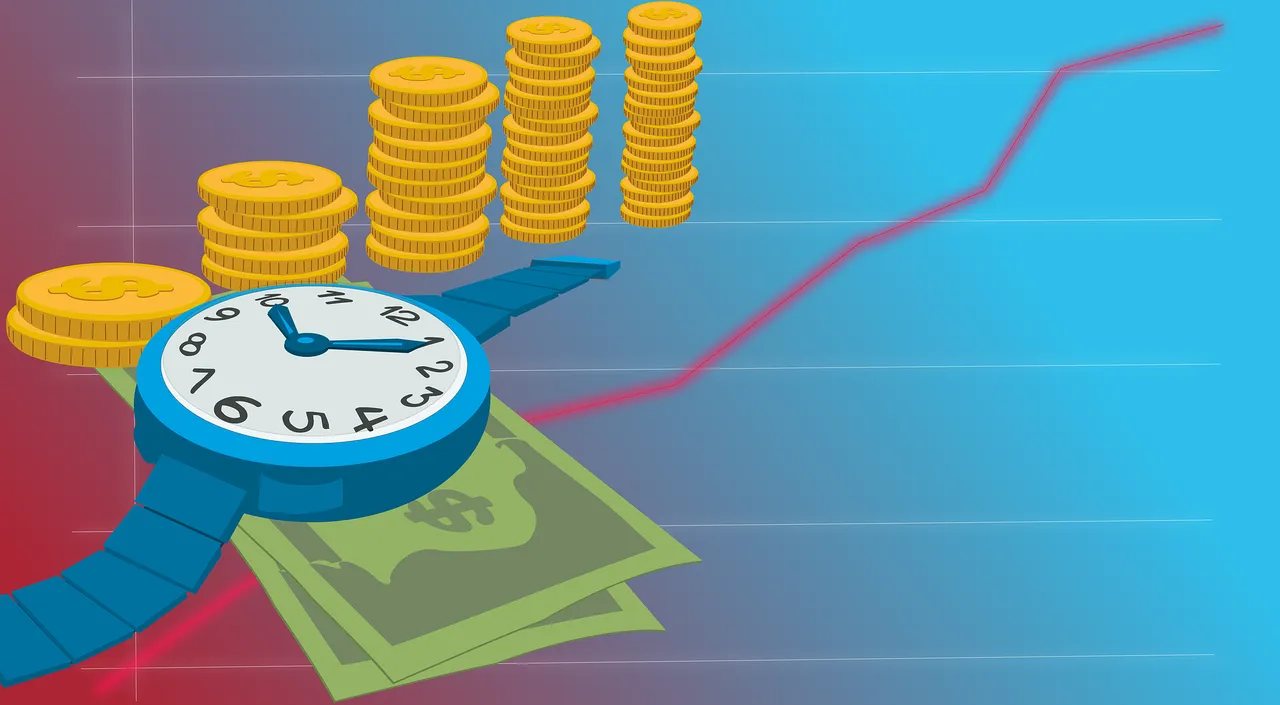Same 24 hours; different results
I am continuously astounded by the different in outcome of human volition (how people act). We all have 24 hours per day. What do successful people do that others do not in those same 24 hours? These are ideas that spark my curiosity. How is it that some people grow poorer and others grow richer?
I have been studying economics and financial education for over 8 years now. What I mean is self-educating myself through books and mentorship. I have come to the conclusion that an individual’s financial education ultimately determines their financial well-being. It’s no tricks or magic; it’s just plain ol’ knowing what you are doing.

Creative Commons
Image Source
What is Financial Education
Financial Education is the discipline of learning and implementing proven ideas on how to produce, maintain and multiply financial wealth. These are not new ideas, they are readily available for whoever wants to learn. Of course, as with all knowledge, you can only reap its benefits by applying the knowledge in a disciplined manner. For example, many of us may know that saving a certain amount of money per month is healthy for your personal finances, but only very few actually apply this knowledge on a consistent basis. Knowledge requires application; otherwise, it is useless.
Finding relevant information on the subject of financial education is very simple. I will share here a few of the books which I highly recommend to my students. I chose these books specifically because I think that they really explore the fundamental principles of a solid financial education. They are “to the core” books that explore governing dynamics and are tried and tested methods. That being said, I want to clarify that managing money has everything to do with managing emotions.
Books that I would recommend to increase financial education
The Richest man in Babylon.
George S. Clason
https://www.amazon.com/Richest-Man-Babylon-George-Clason/dp/0451205367/ref=sr_1_1?ie=UTF8&qid=1528231601&sr=8-1&keywords=the+richest+man+in+babylonRich Dad, Poor Dad.
Robert Kiyosaki
https://www.amazon.com/Rich-Dad-Poor-Teach-Middle/dp/1612680194/ref=sr_1_1?ie=UTF8&qid=1528231882&sr=8-1&keywords=Rich+dad+poor+dadThink and grow rich
Napoleon Hill
https://www.amazon.com/Think-Grow-Rich-Publication-Foundation/dp/193787950X/ref=sr_1_4?s=books&ie=UTF8&qid=1528231897&sr=1-4&keywords=think+and+grow+richThe cash-flow quadrant.
Robert Kiyosaki and Sharon L. Lechter
https://www.amazon.com/Rich-Dads-Cashflow-Quadrant-Financial/dp/0446677477/ref=sr_1_2?s=books&ie=UTF8&qid=1528232124&sr=1-2&keywords=cashflow+quadrantCommon Cents.
Tony Cerrato
https://www.dropbox.com/s/yovvgkgkesitsri/CC5.pdf?dl=0
If you would like to improve your financial well-being for the rest of your life, I would highly recommend the above literature. Keep in mind that nature and principles usually work in a more natural time basis. You have to put in the work, be consistent and put in the time to obtain results.
Misma 24 horas; diferentes resultados
Estoy continuamente asombrado por los diferentes resultados de la volición humana (cómo actúan las personas). Todos tenemos 24 horas por día. ¿Qué hacen las personas exitosas que otros no en esas mismas 24 horas? Estas son ideas que despiertan mi curiosidad. ¿Cómo es que algunas personas se empobrecen y otros se vuelven más ricos?
He estudiado economía y educación financiera por más de 8 años. Lo que quiero decir es autoeducarme a mí mismo a través de libros y tutoría. He llegado a la conclusión de que la educación financiera de un individuo en última instancia determina su bienestar financiero. No son trucos ni magia. es simplemente saber lo que estás haciendo.

Creative Commons
Fuente de Imagen
¿Qué es la educación financiera?
La educación financiera es la disciplina de aprender e implementar ideas comprobadas sobre cómo producir, mantener y multiplicar la riqueza financiera. Estas no son ideas nuevas, están disponibles para quien quiera aprender. Por supuesto, como con todo conocimiento, solo puedes cosechar sus beneficios aplicando el conocimiento de una manera disciplinada. Por ejemplo, muchos de nosotros podemos saber que ahorrar una cierta cantidad de dinero por mes es saludable para sus finanzas personales, pero muy pocos realmente aplican este conocimiento de manera consistente. El conocimiento requiere una aplicación; de lo contrario, es inútil. Eso dicho, debe aclarar que manejar dinero, tiene que ver completamente con como manjemaos nuestras emociones.
Encontrar información relevante sobre el tema de la educación financiera es muy simple. Compartiré aquí algunos de los libros que recomiendo a mis alumnos. Elegí estos libros específicamente porque creo que realmente exploran los principios fundamentales de una sólida educación financiera. Son libros "a su esencia" que exploran las dinámicas de gobierno y son métodos probados.
Libros que recomendaría para aumentar la educación financiera
- El hombre más rico en Babilonia.
George S. Clason
https://www.amazon.com/Richest-Man-Babylon-George-Clason/dp/0451205367/ref=sr_1_1?ie=UTF8&qid=1528231601&sr=8-1&keywords=the+richest+man+in+babylon
- Padre Rico, Padre Pobre.
Robert Kiyosaki
https://www.amazon.com/Rich-Dad-Poor-Teach-Middle/dp/1612680194/ref=sr_1_1?ie=UTF8&qid=1528231882&sr=8-1&keywords=Rich+dad+poor+dad
- Piensa y hazte rico
Napoleon Hill
https://www.amazon.com/Think-Grow-Rich-Publication-Foundation/dp/193787950X/ref=sr_1_4?s=books&ie=UTF8&qid=1528231897&sr=1-4&keywords=think+and+grow+rich
- El cuadrante de flujo de efectivo.
Robert Kiyosaki y Sharon Lechter
https://www.amazon.com/Rich-Dads-Cashflow-Quadrant-Financial/dp/0446677477/ref=sr_1_2?s=books&ie=UTF8&qid=1528232124&sr=1-2&keywords=cashflow+quadrant
- Common Cents.
Tony Cerrato
https://www.dropbox.com/s/yovvgkgkesitsri/CC5.pdf?dl=0
Si desea mejorar su bienestar financiero para el resto de su vida, recomendaría la literatura anterior. Tenga en cuenta que la naturaleza y los principios suelen funcionar de forma más natural. Tienes que poner el trabajo, ser consistente y poner el tiempo para obtener resultados.